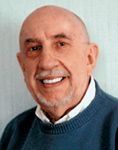- Case-Based Roundtable
- General Dermatology
- Eczema
- Chronic Hand Eczema
- Alopecia
- Aesthetics
- Vitiligo
- COVID-19
- Actinic Keratosis
- Precision Medicine and Biologics
- Rare Disease
- Wound Care
- Rosacea
- Psoriasis
- Psoriatic Arthritis
- Atopic Dermatitis
- Melasma
- NP and PA
- Skin Cancer
- Hidradenitis Suppurativa
- Drug Watch
- Pigmentary Disorders
- Acne
- Pediatric Dermatology
- Practice Management
- Prurigo Nodularis
- Buy-and-Bill
Article
Begin retirement saving early
In case you missed it, I want to tell you about a startling piece of news that I came across recently in a scientific study done by Brightwork Partners and published in USA Today. It was determined that rich retirees are happier than retirees who are not rich. Huh?

Yep, that's right. The study reported that about half of retirees with annual incomes of $75,000 or more described themselves as "very satisfied" with retirement while only one-third of those with incomes under $50,000 were as happy. I don't know about you, but to me, that sounds like scientific proof that money really can buy happiness.
I would imagine that Brightwork Partners spent considerable money to gather this groundbreaking information. Perhaps a follow-up study to establish once-and-for-all whether or not healthy people are happier than sick people, or young people are more energetic than old people, would be appropriate.
According to a recent study, a person retiring today at age 65 can expect to live an average of 16 years in retirement. To enjoy those years without suffering the stress of financial pressures, early retirement planning is an absolute must.
As a practicing professional, you don't have a mandatory retirement age. With a little luck, you'll be able to work as long as you have a mind to do so. Whether your current plan calls for working as long as your health permits, or taking an early retirement to go scuba diving in the Bahamas, there is one important question that you should answer now: How you will fund your retirement years.
Funding retirement
Whether your investments are already going into a tax-favored retirement plan (and I hope they are) or a plain vanilla investment portfolio, you should have an overall plan that looks ahead to when you take leave of the working world. The earlier you begin your long-range plan, the more likely it is that you will be able to maintain (or even improve) your lifestyle in retirement. The longer you wait, the more difficult it will be for you to put aside the kind of money that a comfortable retirement demands these days.
Your retirement plan can consist solely of your own personal investments (not a good choice) or it can be structured around an individual retirement account (IRA), a Roth IRA, SEP, a Keogh or a solo 401(k). Which of these alternatives is best for you depends on such variables as whether or not you have employees or partners, the size of your practice, your age and your tolerance for risk. Regardless of your circumstances, this decision is so important and complex that you should seek the advice of your accountant or other financial advisor before committing yourself.
Whether you will benefit most from a retirement plan that defers taxes until you begin withdrawals, or whether it's best to pay taxes on your retirement investments now and enjoy tax-free withdrawals at retirement is another decision that depends on both your circumstances and your own preferences.
Sell or liquidate?
Another important aspect of your retirement plan involves the practice itself. Will you sell it? Liquidate it? Pass it on to a family member? You may not be able to answer these questions with certainty now. Still, they should be a consideration in structuring your long-range plan.





